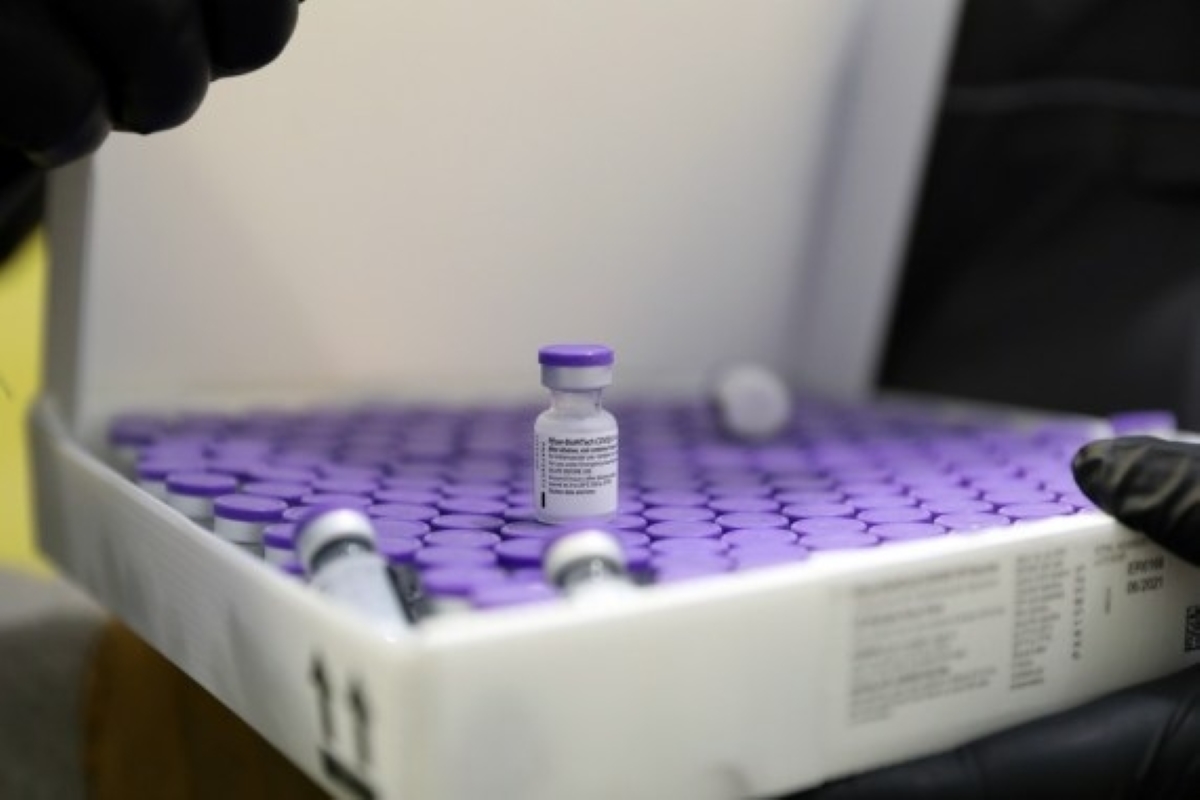Netflix CEO Ted Sarandos’ pay package dipped in 2023, but still it was $49.8 mn
Netflix co-CEO Ted Sarandos earned a bit less in 2023 than the year before -- but his pay package was still worth $49.8 million, reports 'Variety'.
Hours after Pfizer’s announcement, U.S. health officials issued a statement saying fully vaccinated Americans don’t need a booster yet

IANS
For protection against the deadly Delta variant and to boost immunity, Pfizer is about to seek US authorisation for a third dose of its Covid-19 vaccine.
The jab is to be taken within 12 months.
Although two doses are mandatory for high-level immunity against contagious mutants but antibodies naturally wane over time, so studies are underway to ascertain if a booster dose might be needed.
Advertisement
On Thursday, Pfizer’s Dr. Mikael Dolsten said that early data from the company’s booster study suggests people’s antibody levels jump five- to 10-fold after a third dose, compared to their second dose months earlier.
In August, Pfizer plans to ask the Food and Drug Administration for emergency authorization of a third dose, he said.
Why might that matter for fighting the delta variant? Dolsten pointed to data from Britain and Israel showing the Pfizer vaccine “neutralizes the delta variant very well.”
But FDA authorization would be just a first step – it wouldn’t automatically mean Americans get offered boosters, cautioned Dr. William Schaffner, a vaccine expert at Vanderbilt University Medical Center.
Public health authorities would have to decide if they’re really needed, especially since millions of people have no protection.
Giving another dose would be “a huge effort while we are at the moment striving to get people the first dose.”
Hours after Pfizer’s announcement, U.S. health officials issued a statement saying fully vaccinated Americans don’t need a booster yet.
U.S. health agencies “are engaged in a science-based, rigorous process to consider whether or when a booster might be necessary,” the FDA and Centers for Disease Control and Prevention said in a joint statement.
That work will include data from the drug companies, “but does not rely on those data exclusively,” and any decision on booster shots would happen only when “the science demonstrates that they are needed,” the agencies said.
Currently only about 48 per cent of the U.S. population is fully vaccinated.
A few weeks ago the delta variant accounted for just over a quarter of new US cases, but it now accounts for just over 50 per cent – and in some places, such as parts of the Midwest, as much as 80 per cent.
Also Thursday, researchers from France’s Pasteur Institute reported new evidence that full vaccination is critical.
Researchers in Britain found two doses of the Pfizer vaccine, for example, are 96 per cent protective against hospitalization with the delta variant and 88 per cent effective against symptomatic infection.
That finding was echoed last weekend by Canadian researchers, while a report from Israel suggested protection against mild delta infection may have dipped lower, to 64 per cent.
“Let me emphasize, if you were vaccinated, you have a very high degree of protection,” Dr. Anthony Fauci, the U.S. government’s top infectious disease expert, said Thursday.
In the U.S., case rates have been rising for weeks and the rate of hospitalizations has started to tick up, rising 7 per cent from the previous seven-day average, Dr. Rochelle Walensky, the CDC director told reporters Thursday.
Advertisement